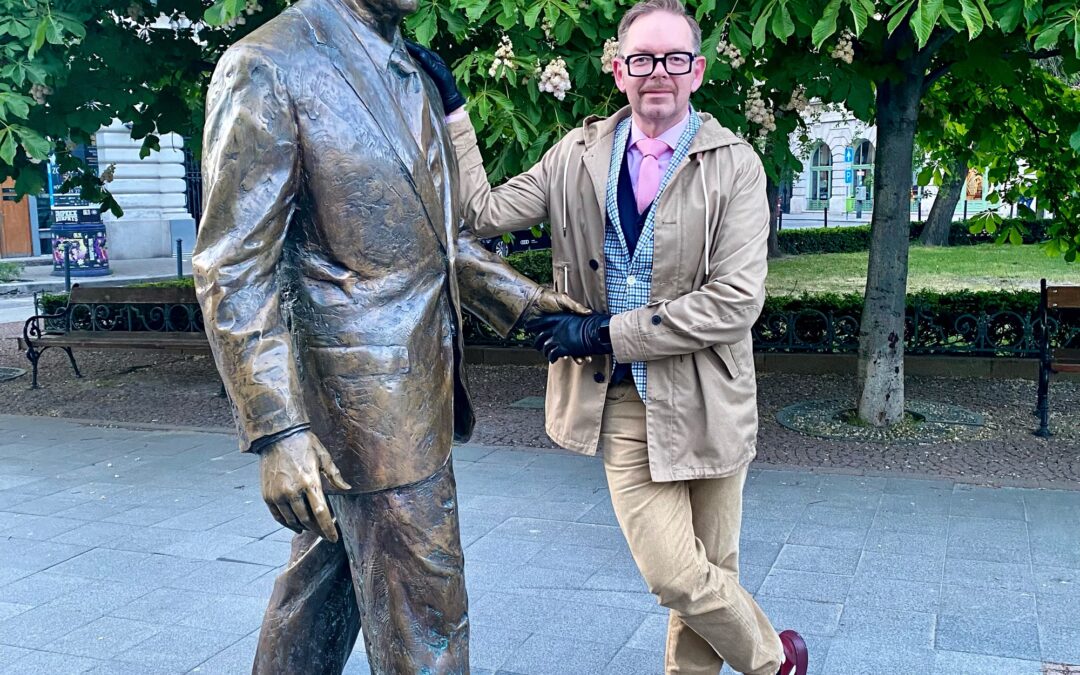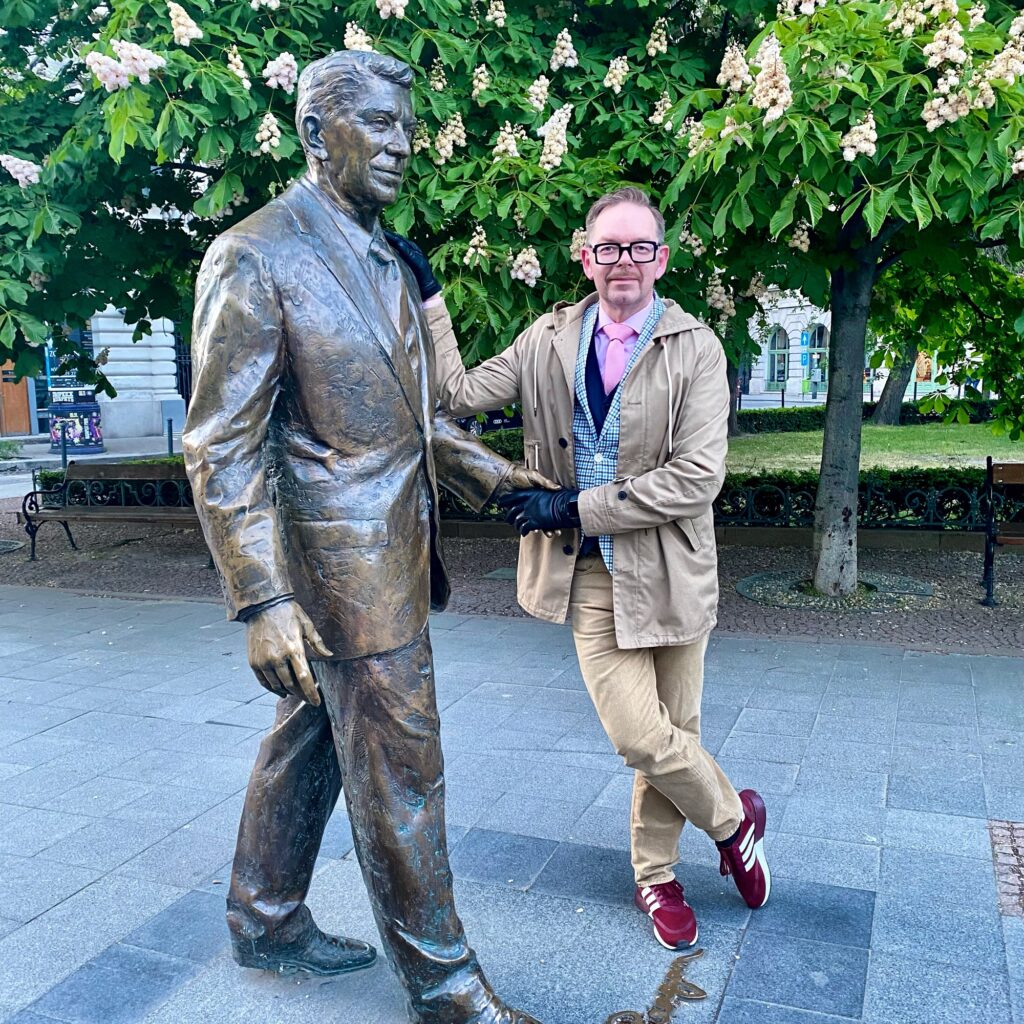
Standing with Statues, Speaking of Freedom: Ronald Reagan’s Lasting Influence
I recently visited Bond Street in London to converse with my favorite statue, Churchill. Now, in Liberty Square in Budapest, I met another personal favorite for the first time: Reagan.
In a tribute to the Hungarian people, Reagan designated an official Freedom Fighter Day, proclaiming:
‘The freedom fighters, as they were called by a world amazed at their heroism and idealism, fought almost barehanded against heavy odds, and soon fell victim to treachery and ruthless suppression. But they lit a candle of hope and inspiration that can never be extinguished.’
Reagan played a pivotal role in cooling the tensions of the Cold War with the ‘Evil Empire’ through a strategic race to deploy an anti-nuclear defense system in space. This initiative, combined with a significant drop in oil prices, financially crippled the Soviet bloc.
Reagan often began his speeches with humor about the opposition, as exemplified by this anecdote:
‘Two men, an American and a Soviet, were arguing. The American said, “In my country, I can go to the White House, walk into the President’s office, and pound the desk saying, ‘Mr. President! I don’t like how you’re running things in this country!’” The Soviet replied, “I can do that too!”
“Really?”
“Yes! I can go to the Kremlin, walk into the General Secretary’s office, and pound the desk saying, ‘Mr. Secretary, I don’t like how Reagan is running his country!'”
However, the most memorable words are from Ronald Reagan’s 1987 speech in West Berlin:
‘General Secretary Gorbachev, if you seek peace, if you seek prosperity for the Soviet Union and Eastern Europe, if you seek liberalization: Come here to this gate! Mr. Gorbachev, open this gate! Mr. Gorbachev, tear down this wall!’
On that historic day, over 50,000 people demonstrated against Reagan in West Berlin. Reflecting on the demonstrators, Reagan remarked at the end of his speech, ‘I wonder if they have ever asked themselves that if they should have the kind of government they apparently seek, no one would ever be able to do what they are doing again.’

